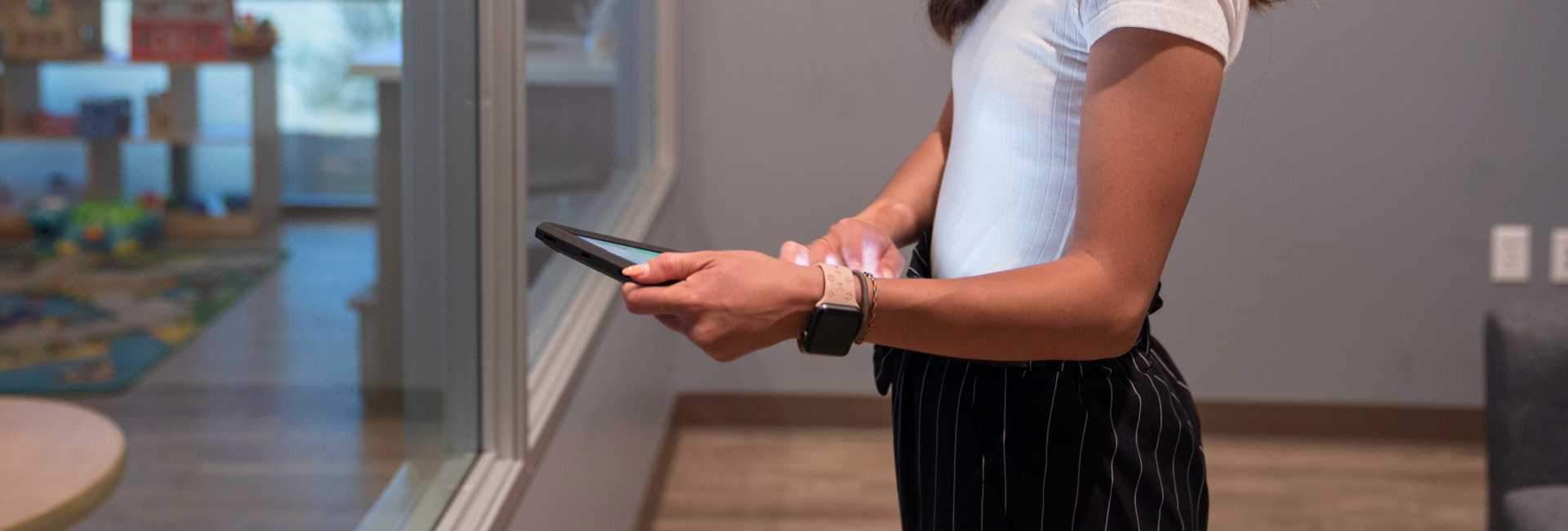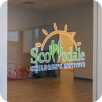-
General FAQ
-
How do I know if my child is school ready?
There are both subjective and objective milestones that can be used to determine a child’s readiness for kindergarten. Subjectively, parents and/or teacher may express concerns about a child’s readiness for school based on personal experiences with that child in comparison to other children his or her age. Objectively, there are tools that can be used to measure a child’s readiness for school based on the academic, behavioral, and emotional performance of the child. Unfortunately, in many cases, children are unsuccessful in their school environments simply because the environment does not provide the type and/or amount of support currently needed for that child to be successful.
-
How will you determine if my child is school ready?
If you are concerned that your child may not be kindergarten ready, we offer a kindergarten-readiness assessment free of charge to any family looking for support. During this assessment, we will assess your child’s skills across a variety of different areas, including mathematics, reading, writing, social skills, language, compliance and self-management. The results are then analyzed in relation to the C-PIRK® which is a comprehensive preschool inventory of repertoires for kindergarten assessment tool. Your child’s performance will also be compared to the Arizona early learning standards to assess whether your child is currently meeting the state’s expectations for preschool/kindergarten and identify potential areas of need for expectations not currently being met. Based your child’s performance across these areas as compared to the general expectation of children in the same age group, we will make a recommendation about whether your child is kindergarten ready, or not.
-
What will my child's day look like?
9:00 – 9:15 am: Morning routine, which includes having the children go to their cubby, hanging up coat, putting backpack away, getting out communication notebook, etc.
9:15 – 9:45 am: Morning circle where the children learn to sit, raise their hand, sing songs, answer questions about the weather, etc.
9:45 – 10:00 am: Group play period in the toy area where the children get to communicate and play with each other while working on their language and social skills with the help of our staff
10:00 – 10:30 am: Academic centers for reading and writing. During this time, the children work on their own individual goals within these areas and work directly with the teachers on multiple programs to target their reading/writing needs
10:30 – 10:45 am: Snack time
10:45 – 11:15 am: Academic centers for mathematics
11:15 – 11:45 am: Social skills, play skills, and language development
11:45 – 12:00 pm: Closing circle, which includes having the children again practice sitting appropriately, raising their hands, and singing goodbye songs to their peers
-
What are the benefits of inclusion?
One of the most valuable contributions of the inclusive model is its ability to teach children tolerance and acceptance of others whom are different than themselves, an increasingly important quality for children to possess in today’s increasingly diverse population. Aside from these benefits, the highly individualized curriculum, the ratio of staff to students, and the level of care and support your child will receive, whether they do or do not present with a disability or behavioral needs, sets our program apart from all others. Our data-based system ensures that progress is being made through the use of customized goals, consistent measurement of performance, and implementation of modifications as necessary.
-
Will my child pick up negative or naughty behaviors?
The contingencies of positive reinforcement in the classroom are set up in such a way that children quickly learn which behaviors gain them attention and access to “good” or “fun” things, and which behaviors do not. When a child observes another child engaging in undesirable behavior yet can also observe that no attention is given to that child for these behaviors, nor is access to preferred activities or items given, the child quickly differentiates between acceptable and unacceptable ways to behave in school.
-
What makes an ABA kindergarten readiness program different than other schools?
One of the defining characteristics of applied behavior analysis (ABA) is the continuous measurement of behavior and learning. When the principles of ABA are applied to the school setting, it is paramount that every student response is recorded, graphed, and analyzed to measure progress and adjust programming as necessary. Although many programs and schools claim to be “ABA schools”, the level of measurement and data analysis being conducted on student responding often does not meet the minimum requirements to elicit effective behavior change or increase acquisition of new academic learning tasks. At SCI, we take pride in our attention to detail when it comes to the science of teaching and learning. We monitor every behavior and record every student response to ensure that what we are teaching is effective for the child.
-
Is the program private pay only or can I use my insurance benefits and/or ESA funds?
For families of children with a medical diagnosis, insurance may be used to cover the costs of the program. However, we only accept insurance from certain providers so please make sure to inquire about our insurance policies and requirements from our administrative staff at your earliest convenience. For families of preschool-aged children with a diagnosis, ESA funds may also be used to cover the costs of attending our program.
-
How do I know if my child is school ready?
-
Our Program
-
What does the curriculum look like?
Our curriculum is eclectic and includes many different components. Our curriculum design pulls from a variety of different curricula to ensure that a wide range of academic goals are being met across each subject area. Every child’s learning needs are different, and there is no one curriculum that meets the needs of every child. Consideration of all published, evidence-based curricula is made when designing the specific scope and sequence of each child’s individual curriculum. Even with the inclusion of varying curricula, additional modifications are made whenever necessary to increase the student’s likelihood for success.
-
What kind of education and training do the staff have?
All our teachers have a Master’s degree in behavior analysis or a related field and either have or are working toward their BCBA (Board Certified Behavior Analyst) certification. All our teaching assistants have a minimum of a Bachelor’s degree. Continuous supervision and training is provided to all our staff daily. One aspect that makes our program unique is that our clinical director is physically in the room with the staff and students daily to provide training and feedback, a level of expertise and support not often provided.
-
What kind of results should I expect and how will this program help us achieve our goals for our child?
Every student will present with progress specific to their own skill set. That being said, due to the nature of our data-driven model, our individualized curriculum, and our level of supervision and expertise, we can guarantee that your child will progress to the best of their ability. If your child is not showing progress, our data will tell us that progress is not being, and thus modifications will continue to be made.
-
Will my child be accepted into a general education classroom after attending the program?
Results occur at an individualized level and no two children respond the exact same way, and therefore there can be no absolute guarantees about a child’s readiness to attend a general education classroom upon completion of our program, however we will ensure that your child is continuously improving based on their particular skill set and level of performance.
-
What type of student would be a great fit for this program?
We do not exclude any students ages 2-6 from our program unless the student presents with severe behavioral problems that pose a significant risk to the other children. However, students who have a certain level of social awareness and whom are able to engage in social interactions and vocal exchanges with their peers will benefit more greatly from being in a group environment than those students who do not yet possess any of these skills.
-
What level of parent involvement do you expect or encourage?
At SCI, we believe that open communication between our staff and our students’ parents is key to the students’ success.
-
What else should I know about the SCI kindergarten readiness program?
It is important to note that we do have a clinic called Scottsdale Pediatric Behavioral Services attached to the school program (i.e. in the same facility) that delivers 1:1 behavioral therapy to children with a diagnosis. The benefit of this is that children can attend the school readiness program for half of their day, and then work on their individual needs and goals in a more structured, individual environment during the other half of the day. The availability of both services under the same roof is highly beneficial, as our staff from both organizations can communicate about your child’s needs in both settings and work together to attain the best possible outcomes.
-
What does the curriculum look like?
-
Insurance/Billing FAQ
-
What insurance companies do you accept?
Currently, we only accept Blue Cross Blue Shield, Cigna and Aetna insurance. At this time we are not able to offer services through other insurance companies due to a lack of adequate reimbursement for our staff. We are constantly working and negotiating with the major insurance companies to work out an acceptable rate for all parties so that we can offer affordable services to all families.
-
What insurance companies do you accept?

Frequently Asked Questions
Still Looking for Answers
Common Questions From Students and Their Families.



